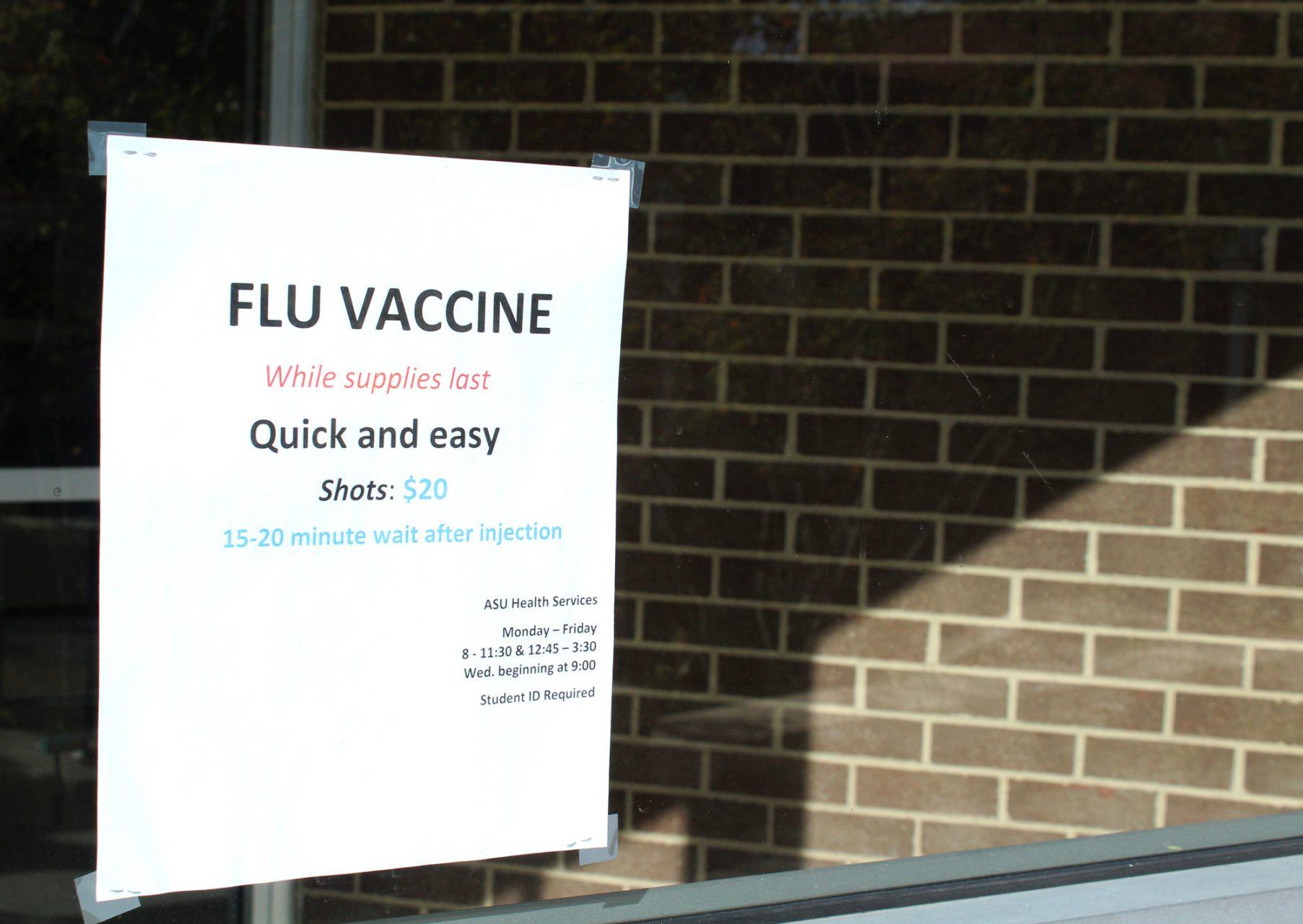Story by Anna Dollar, News Reporter
Photo by Mickey Hutchings
Near-pandemic, pandemic is defined as a widespread disease, levels of flu and influenza-like illnesses caused the Appalachian Regional Healthcare System to start limiting visitations at Watauga Medical Center, Charles A. Cannon Jr. Memorial Hospital and The Foley Center as of Feb. 14, according to the Watauga Democrat.
The numbers for the flu have been higher this year. The percentage of influenza-like illness in ILINET outpatient visits on Feb. 10 of 2018 was about 11 percent while on Feb. 10 of 2016 it was about 2 percent. The number of cases of the flu at the university were also higher this year, Dr. Robert Ellison, director of Mary S. Shook Student Health Services at Appalachian State, said.
“We also had an earlier flu onset,” Ellison said. “Typically, the flu begins to show itself after two to three weeks of students coming back from Christmas break, and it seemed to be about a week earlier this year.”
Ellison said that the flu peaked on campus toward the beginning of February.
“During that time, approximately 25 percent of everything we were seeing in clinic each day was flu or flu-like in nature,” Ellison said. “It was thought before the flu season really began that this was going to be a much heavier flu season across the United States. Public health experts anticipated that, and correctly so.”
According to Dr. Kathleen Rayman, chair of the Department of Nursing at Appalachian State, the school gets information from the Centers for Disease Control and Prevention, which tracks national and international cases of the flu and keeps the data in order to make comparisons of each flu season.
“They try to make predictions about how they are going to set up the vaccines based on those data,” Rayman said. “But there are a lot of other things that figure into that whole scenario so it’s not a perfect science.”
Rayman said that the elderly, small children and those with compromised immune systems are at greater risk for the flu. She also said the impact of the flu is different for each person that contracts it.
“Treat it seriously. That’s why they tell you to get your flu shots. Just try to take precautions in terms of good, general health habits. That’s the best thing that you can do, which would be diet, exercise, stress reduction,” Rayman said.
@Anna_Carrr News Reporter



